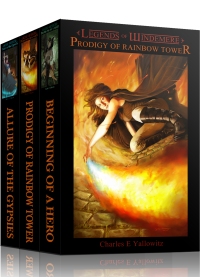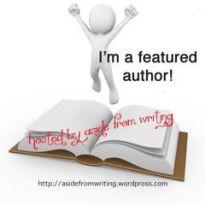
Luke Cage
Now that we have an idea of what we mean by invulnerability, how do we use it? The power can pose a problem for clear reasons. Mostly, it can be abused and erase all sense of stakes in the story. We’ll get into the backlash on Friday, but here are some ways to make this power work in a story.
- Invulnerability doesn’t always mean 100% resistant to injury. It sounds like an umbrella term, but it can be used to say the character is hard to hurt. There can be things that get through this power. Kryptonite is the best and most famous example here. The weaknesses do have to be rare or there’s no point in being invulnerable to begin with. This also adds tension because people won’t know when this weakness will pop up.
- Invulnerability doesn’t always mean super strong and fast too. In fact, you can have a person with normal physical abilities and only this power. Now, you have someone who cannot be hurt and that’s really it. If they’re still punching with regular human power, they’re not going to be able to win easily. Yes, they can outlast their opponent, but how much damage will be caused while they’re struggling to lay out someone?
- Keep in mind that invulnerability can be a danger to those around the hero. This is mostly for deflecting projectiles with their body. Whether it be having skin of steel or rubber, bullets will bounce off the hero. Where do they go? A hero won’t always be able to figure that out, so there’s a possibility of innocent bystanders getting hit. So, a character in this situation will have to think about acting as a human shield, especially since they’d only be able to block a few people standing behind them. Anyone off to the sides will be in danger.
- Invulnerability can make a hero arrogant to the point of taking risks. The longer a person goes without getting hurt, the higher the chance that they forget what it’s like feel pain. Not only that, but they will forget the basic skills needed to avoid getting injured. So, they’ll be more susceptible to walking into traps where their weaknesses are being used. They may start to lose their sense of empathy too because they won’t understand what it’s like to be hurt any more.
- Invulnerability is usually about the body and not the mind. This means anything that affects the mind and soul are dangers. You can write that this is a mental and emotional invulnerability too, but that’s just making it impossible to do anything to the character. Leaving them open to psychic attacks, emotion- altering spells, and illusions helps them maintain a level of vulnerability. It will also help in preventing #4 from occurring.
- Clothes can still be damaged, but nobody really pays attention to this.
- Invulnerability could be something that’s conditional or limited. Maybe the character only has this power during the daylight hours or loses it on the weekends. The object of this is to create periods of vulnerability, which the hero or villain will actively try to hide from enemies. Once the secret is out, they will have to fight for their lives during their weak moments.





Great tips! Luke Cage is a great example! I’m also thinking of a character in Kristin Cashore’s Graceling series. Here is the paragraph that describes her:
Katsa’s Grace is survival. It encompasses a variety of benefits, such as having a strong immune system, rarely tiring, being able to control how long she sleeps for, and having a higher tolerance for pain and injuries. Most notably, it gives her excellent fighting skills. She’s able to fend off eight to ten men, all in full armour, with only her bare hands. When taking Bitterblue through the dangerous Grella’s pass, she sucessfully fought and killed an attacking moutain lion. (From https://lienid.fandom.com/wiki/Katsa)
But would you say this makes her invulnerable?
LikeLike
Sounds more like she’s durable and a good warrior. I’m noticing how rare invulnerability and invincibility actually is.
LikeLiked by 1 person
Yeah, they seem pretty rare. I guess these traits are hard to do, especially if you want people to side with the character and feel tension concerning him or her. Though there is something appealing about an invulnerable character. Though, as you mentioned, others around that character pay the price. Lois Lane was always getting kidnapped.
LikeLike
I’ll be touching on that Friday.
LikeLiked by 1 person
My tip would be: don’t. Your character has to have some limits and vulnerabilities. Or, make the invulnerability only a rumor that proves to be untrue.
LikeLike
I think it’s still feasible. People have non-physical vulnerabilities, so heroes can have that as well. It could be susceptibility to emotional damage or a creed that they have to maintain. It’s a challenge, but the right story and hero personality can make it work.
LikeLiked by 1 person
You’re making me think again. I had a guy shoot the hat with a 12 gauge. It hurt, but he reformed. In the newest one, I mentioned a character that could kill him. I’m kind of dancing around the direct topic here. Hints, but not much more. I like the idea of minor super types. They aren’t heroes, but have a special ability. I can see the guy you’re describing making decent money as a bull rider, but he’s not a hero until forced into it.
LikeLike
I’m always curious how people know about things that can kill rare or one-of-a-kind beings. I mean, how would you know it works if you haven’t killed the unique creature yet?
LikeLiked by 1 person
Another reason not to dig too deep in Fantasy, SF, or supernatural.
LikeLike